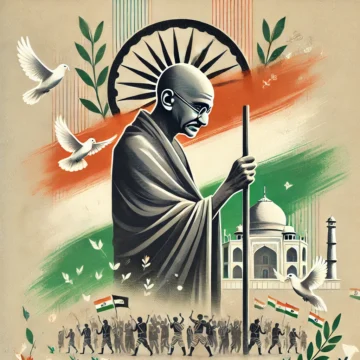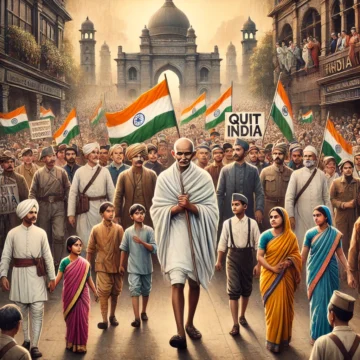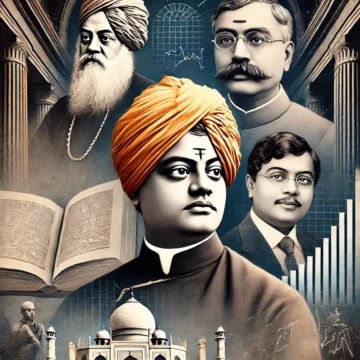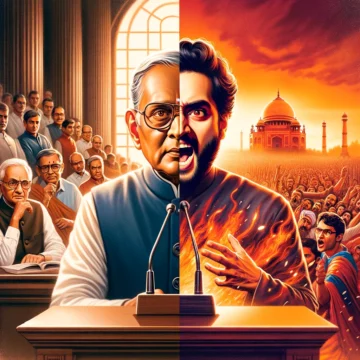Mahatma Gandhi and his legacy of nonviolent resistance and his philosophies of Ahimsa (nonviolence) and Satyagraha (passive resistance) are said to have shaped India's struggle for independence. While his principles remain influential, Gandhi’s leadership faced intense criticism, especially for his decisions and approach. This blog critically examines his impact, challenges, and controversies.
Tag: Indian National Congress
Riots in Kohat and Forgotten Exodus: Kashmir Exodus 1.0
The riots in Kohat of 1924 and the 1989 exodus of Kashmiri Pandits share a legacy of communal violence under differing political regimes. This blog explores the catalysts, impacts, and enduring lessons of these events, shedding light on the complexities of Hindu-Muslim relations in India's fraught historical landscape.
India’s Freedom Struggle and Quit India Movement-I
This blog explores India's Freedom Struggle, emphasizing Gandhi's controversial leadership in movements like Non-Cooperation and Quit India. Despite widespread admiration, his strategies, marked by abrupt decisions and strategic recalibrations, played complex roles in shaping India's quest for independence, raising questions about the overall impact of his 33-year-long leadership.
World War I and Devastation of Bharat I K
World War I profoundly impacted Bharat, catalyzing a political awakening and fueling nationalist sentiment. The war's socio-economic strains exacerbated tensions, leading to widespread unrest and laying the groundwork for future resistance movements. Leaders like Mahatma Gandhi, initially supportive of the British war effort, shifted toward advocating for direct action against colonial rule, setting the stage for Bharat’s independence.
Personalities of the 27th Week: A Glimpse into the Lives
Join us at HinduInfoPedia.org as we explore 'Personalities of the 27th Week,' spotlighting visionaries from Swami Vivekananda to Rakesh Jhunjhunwala. Their philosophies and strategies shaped not just Indian heritage but also offer insights into enduring global influences. Reflect on how their legacies continue to inspire and shape our socio-political landscape.
Indian Freedom Fighters: Legacy of Gopal Krishna Gokhale
As one of the prominent Indian freedom fighters, Gopal Krishna Gokhale played a pivotal role in the early years of India's struggle against British colonial rule. Born on May 9, 1866, in Ratnagiri, Maharashtra, Gokhale's contributions as a senior leader of the Indian National Congress and a distinguished social reformer were significant. His diplomatic skills and steadfast principles led him to the presidency of the Congress in 1905, advocating for self-rule through gradual and constitutional reforms. Gokhale’s commitment to moderate nationalism and his focus on elevating the Indian elite's status underscored his strategic approach to engaging with colonial authorities through dialogue and legislative advocacy. His founding of the Servants of India Society aimed to prepare the nation for self-governance by educating and reforming society from within, further cementing his legacy as a reformer. The juxtaposition of Gokhale’s philosophies with those of Bal Gangadhar Tilak offers profound insight into the diverse strategies that shaped the struggle of Indian freedom fighters, highlighting the complex interplay between moderate reform and radical activism in their quest for self-rule.







